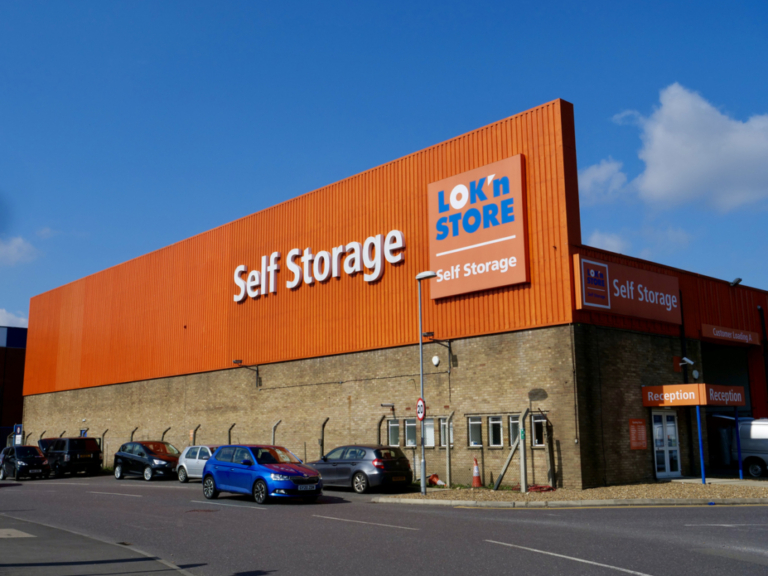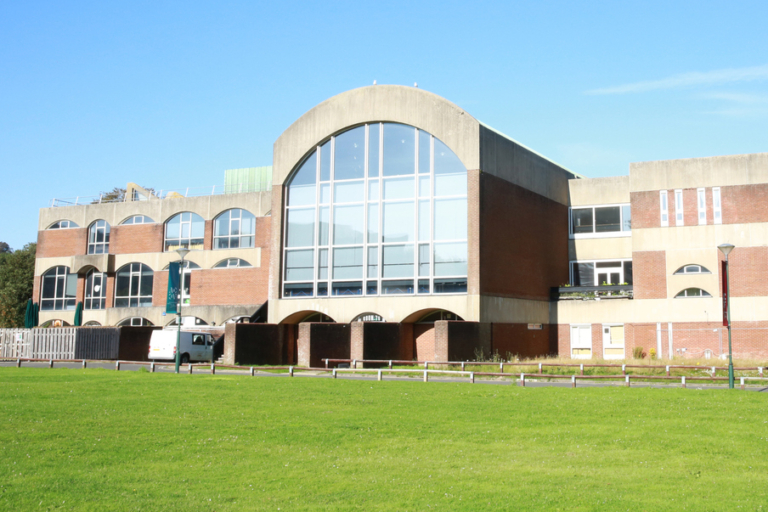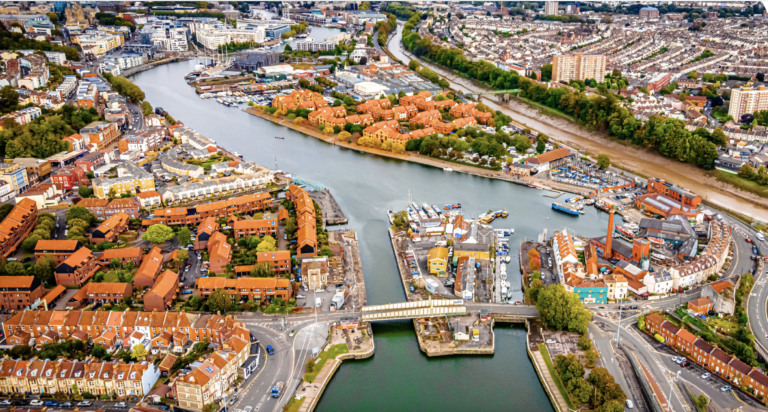The history of how Reading became known as 'The Biscuit Town'
Bulbs, beer and biscuits… The ‘Three B’s’ of Reading. They’re a trio of products which came to define the growth of the Berkshire town in the 19th and 20th centuries.
Each of them had innovative, pioneering and successful businesses driving the town towards being something of an early economic powerhouse. Bulbs had Suttons Seeds, beer had the Simonds Brewery (something we discuss in detail here in a recent article about them) and biscuits had Huntley & Palmers.
There’s no better time to discuss how Huntley & Palmers came to put Reading on the map, given that this year marks the 200th anniversary of the company’s formation.
Using a timeline of events, let’s explore how one little bakery on London Street transformed into the world’s biggest biscuit factory, established an internationally famous brand sold in 137 different countries and changed the landscape of its hometown forever…

1822
Quaker and schoolmaster Joseph Huntley opened a small shop on the London to Bath road, selling his handmade crackers and biscuits to hungry coach travellers. His creations proved to be a hit and his business, though small, began to do well.
1829
Joseph’s son Thomas joined the company and the business at 119 London Road slowly started to expand.
1831
J. Huntley & Son still primarily sold to people riding through on coaches. To protect the biscuits from breaking, Joseph had an idea - sell them in tins. With that simple thought, the man had invented the biscuit tin. The manufacturing of which would prove to be a large part of the company and town for years to come.
1838
Ill health eventually forced the older Huntley to retire. Thomas took over the company, but struggled to run the expanding firm on his own. He was a dedicated worker, but - by all accounts - lacked his father’s head for business.
1841
Wisely, the young Thomas Huntley recruited a business partner - fellow Quaker and a distant cousin of his, George Palmer. George was well educated, smart and had a background in confectionery. The company was renamed to reflect the change.
The Huntleys established a business with good foundations, George Palmer was to build an empire upon them.

1846
Five short years after joining, operations had to move because of expansion. A new factory that was to become Reading's largest place of employment for some years, on Kings Road, was opened. There were 30 employees working there on the first day of production. That number quickly grew.
Immediately, George implemented processes and developed machinery that would enable them to be one of the first biscuit makers to be able to mass produce fancy biscuits.
1857
Joseph Huntley died and George Palmer bought out Thomas Huntley's in the company. George then brought his brothers on board, although he decided to keep the company name the same.
1865
Huntley & Palmers became the official biscuit makers to the British Royal Family and decided to expand onto the continent. The company soon received more royal warrants from the likes of Napoleon III and Leopold II of Belgium. They had become a true international concern. Production in Reading ramped up and up.
1871
Reading FC was formed. The club would go on to become known as ‘The Biscuitmen’ to reflect the town’s most prominent business.
With the company growing, the town had to grow with it. Streets of terraced housing were built to house factory employees. Many of which are still standing now, providing the town with rock-solid properties that, to many, is much more appealing than modern builds.
1897
79 year-old George Palmer passed away and control of the company was taken up by George’s son, also called George. By this point, the business was selling more than 23,000 tons of biscuits each year and had an annual turnover in excess of £1.25 million.

1898
Huntley & Palmers went limited, becoming - you guessed it - Huntley & Palmers Ltd.
1900
H&P were awarded a couple of rather prestigious prizes at the Paris Exhibition. By this point they were officially the largest biscuit manufacturer in the world. Posters all across British colonies bragged how 'seldom a ship sails from England that does not bear within his ribs a Reading biscuit.'
By this point, the company was making over 400 varieties of biscuit, employing more than 5,000 people in Reading and was considered one of the most important industrial forces in Britain’s unprecedented Industrial Revolution.
1910
The company’s sweet treats (which, incidentally, were not at all sweet by today’s sugary standards) gained true worldwide fame in this year. Captain Scott’s famous British Antarctic Expedition was the talk of dinner tables across the ‘civilised’ world. Onboard the Terra Nova with Scott and his crew? Tins and tins of Reading finest biscuits.
As the company grew, there was - understandably - a huge demand for labour in the town. As such, Reading became a destination for out-of-work southerners looking to get on the books of a successful employer.
In a few short years, the town’s population had grown some 400% to just shy of 90,000 people.
1914
The company was tasked with making biscuits for soldiers in the trenches of World War One. Durable and long-lasting ‘hard tack’ biscuits were created. They weren’t renowned for their exceptional taste, but they were resilient and took months to spoil.
The orders were substantial and came with serious production demands. All of which were met.
The war also led to a sugar shortage, causing the firm to drastically change its recipes. Sugar substitutes such as honey were used. By the end of the war, many of its best-loved varieties had to be discontinued.
1937
A lavish new four-storey office building was built on Kings Road, costing a not inconsiderable £55,000.
1939
The outbreak of World War Two saw another ramping up of long-life biscuit production for soldiers. The company also devised and created ‘emergency bread’ which would be stored in one of their famous tins, giving it a superior shelf life. So superior was it, that Huntley & Palmer assured the public it would be edible for a full decade.
More constraints from war saw the number of different types of biscuits produced fall. By the mid-1940’s, just 120 varieties were produced, down from some 400+.

1968
Rationing, changing attitudes toward diet and nutrition and mergers and takeovers changed the post-war landscape for biscuits in Reading. By the late-sixties, with the focus on cost efficiencies, Huntley & Palmer were making only two types of cake and around 40 different biscuits.
Modernisation was needed, but the factory site was too small to really accommodate it.
1975
The factory was used as a filming location for much of Alan Parker’s wildly successful film Bugsy Malone. If you remember the movie, you’ll recall the bar scenes. All of which were filmed in Reading.
1976
Biscuit production ceased at the Reading factory. The cramped factory was seen as antiquated and a recently-opened alternative site up in Liverpool was seen as a better choice for the newer machines and processes.
To reflect the move and effectively - at least in part - help rebrand the club, Reading FC officially changed their nickname. Out went the charming ‘Biscuitmen’, in came the rather dull ‘Royals’, a far less interesting moniker that they still use today.
1996
By this point, the company was now fractured and had ceased production in Liverpool too. It had been bought by Danone but effectively wrapped up. The factory in Reading was demolished, but the social club remains standing to this day. As with many other disused sites in the town, the building is now apartments, but the frontage does still bear the iconic name.
2006
Huntley & Palmer was re-established by former Jacob’s executives, aiming to keep the heritage of the brand but keep the company modestly sized. Operations are now based out of Sudbury in Suffolk.
2018
In recent years, one illustrator behind some of the company’s famously intricate and collectible biscuit tins revealed how he would sometimes sneak in ‘naughty hidden images’ into the designs. So the next time you spot a Huntley & Palmer tin, have a look - there may just be a man smoking a joint or some fornicating dogs in there somewhere…

While every last crumb of Huntley & Palmers has now been brushed away from Reading floors, the legacy of the firm remains. Locals still remember the company, the factory, the history and, above all else, the biscuits.
To find out more about Reading’s heritage as The Biscuit Town, there are a variety of events and exhibitions running in the town at the moment, all celebrating 200 years of Huntley & Palmers.
There’s a newly-opened display at The Museum of English Rural Life, which examines the impact of the firm on the town and its people. That’s open until the end of September.
Plus there’s always the permanent Huntley & Palmer gallery at the Reading Museum.
For fans of a stroll, there are a couple of walking tours you can enjoy. There’s Terry’s guided 200th Anniversary Walkabout, as well as an audio trail you can enjoy at your own pace.













